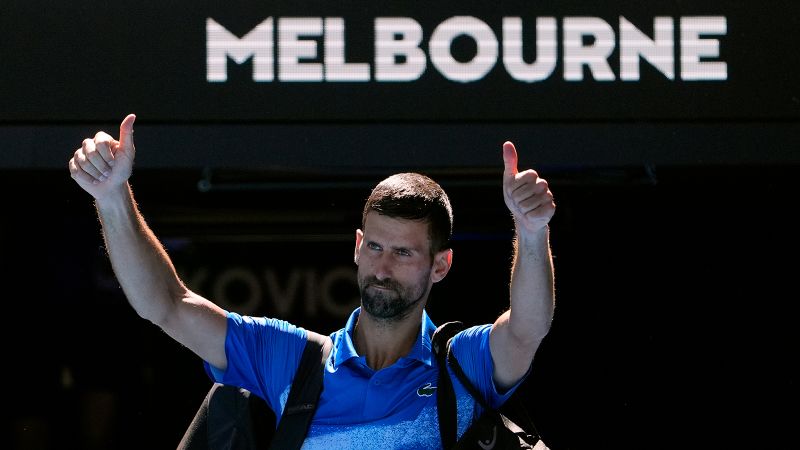 |
|
The Australian Open 2024 witnessed a dramatic turn of events in its semifinal clash between tennis giants Novak Djokovic and Alexander Zverev. Djokovic, chasing a record-breaking 25th Grand Slam title, was forced to retire from the match due to a debilitating left leg injury. The Serbian star, known for his exceptional resilience and ability to overcome physical setbacks, had visibly struggled with his movement throughout the first set. Despite his discomfort, he managed to push the match into a tie-break, ultimately losing 7-6 (5) after a grueling 81 minutes. The sudden end to the match left the crowd at Rod Laver Arena stunned, with a mixture of disappointment and concern evident in their reactions. Zverev, although elated at reaching the final, displayed remarkable sportsmanship, appealing to the crowd to show respect for Djokovic's illustrious career and the physical toll the game takes on its athletes.
Zverev’s heartfelt plea to the audience underscored the gravity of Djokovic's situation and the importance of sportsmanship in the face of adversity. He eloquently reminded the spectators of Djokovic's history of playing through significant injuries, highlighting his dedication and commitment to the sport. This remarkable display of respect from a fellow competitor further emphasized the emotional weight of Djokovic's retirement, moving beyond the immediate disappointment of a missed opportunity to acknowledge the legacy of one of tennis' greatest players. The incident serves as a poignant reminder of the physical demands placed upon elite athletes, and the sacrifices they make in pursuit of their goals.
Djokovic’s post-match interview revealed the extent of his injury, confirming a muscle tear that had been plaguing him since his previous match against Carlos Alcaraz. He had attempted to manage the pain through medication, strapping, and physiotherapy, but the pain intensified towards the end of the first set, making continued play impossible. While he expressed his disappointment at not being able to continue, he emphasized his efforts to compete despite the injury, highlighting his tenacity and unwavering commitment to the tournament. He acknowledged that even if he had won the first set, the severity of his injury made continuing the match an insurmountable challenge.
The uncertainty surrounding Djokovic’s future participation in the Australian Open added another layer of emotional complexity to the situation. While expressing his desire to continue playing, he admitted the possibility of modifying his schedule for the coming year due to the injury. This statement left open the question of whether the Australian Open 2024 marked the end of his remarkable run in Melbourne, a city where he has achieved unparalleled success. His legacy as a ten-time Australian Open champion remains cemented, however, regardless of future participation. The sheer number of titles he has won in Melbourne underscores his dominance in the tournament and solidifies his place in tennis history.
Zverev's victory secures his place in the Australian Open final, where he will face world No. 1 Jannik Sinner. This represents a significant achievement for the German player, marking his first career final at the Australian Open and his opportunity to clinch his first Grand Slam title. The final promises to be a thrilling contest between two exceptional players, each vying for the prestigious championship. While Djokovic's absence is undoubtedly a significant loss to the tournament, the remaining matches are sure to provide exciting and high-stakes tennis for fans around the world. The overall narrative of the tournament is a mix of unexpected twists, incredible sportsmanship, and powerful reminders of the human cost of athletic excellence. The focus now shifts to the upcoming final and the potential crowning of a new Grand Slam champion.
Beyond the immediate implications for the tournament, Djokovic's retirement raises broader questions about the physical toll of elite sports competition and the ethical considerations surrounding athlete welfare. The pressures faced by players to push themselves to the limits, even in the face of injury, are significant. Finding a balance between pushing for success and prioritizing long-term health is an ongoing challenge for athletes at all levels, and Djokovic's situation brings this delicate balance into sharp focus. The debate surrounding athlete burnout and the need for improved support systems within professional sports will likely continue in the wake of this high-profile retirement.
Source: Novak Djokovic retires from Australian Open semifinal due to injury
